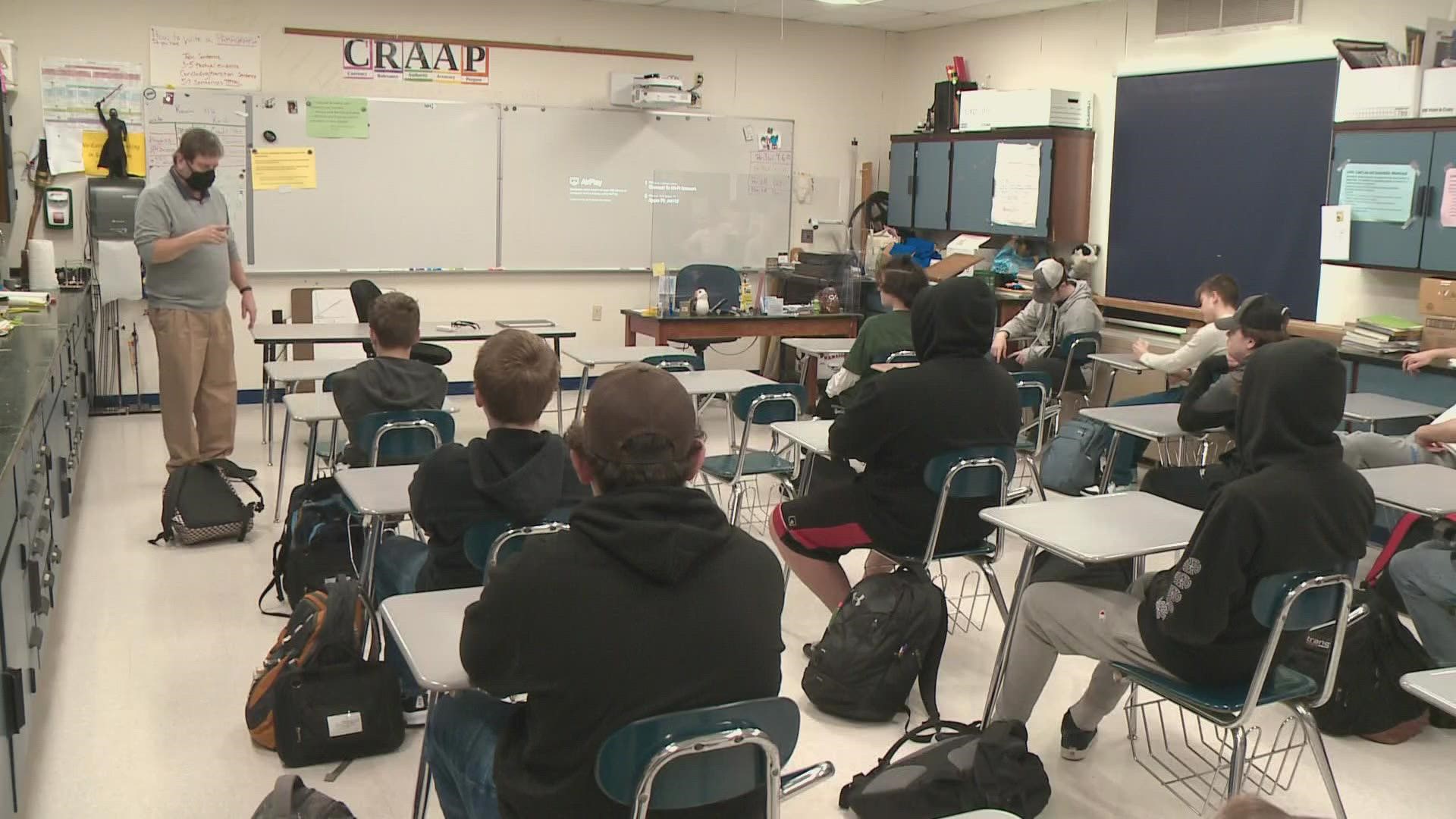WALES, Maine — Freshman students at Oak Hill High School in Wales are learning how to slow down pollution from PFAS chemicals.
In Ed Zuis's ninth-grade science class, the topic is a looming environmental crisis, but it's not climate change.
"Once the forever chemicals are in the ground they runoff into the groundwater," Zuis explained to the class.
The focus of this unit is toxic compounds known as PFAS, industrial chemicals take forever to break down in the environment. Federal health studies have linked exposure to serious health problems, including organ cancers.
That worries Paige Richard.
Last fall, her family harvested a deer from the Fairfield area, a community that was the focus of a state investigation by the Department of Environmental Protection. The chemicals were in municipal sludge that was used as fertilizer on hundreds of acres belonging to the Toizer Dairy farm. For decades, the compounds seeped into the groundwater.
"Our entire family eats that deer, and it came from that area. I just wouldn't want anything, because obviously it has all those severe health effects, and I just don't want my entire family to suffer from that forever," freshman Paige Richard said.
Noah Perrier is concerned about the impact on farm animals consuming tainted feed. He said more awareness is needed about PFAS contamination.
"I think it got swept under the carpet by COVID. I think we need to talk about it more, teach more people about it," ninth-grader Noah Perrier said.
Zuis often shows students stories about PFAS, including NEWS CENTER Maine's coverage. Photojournalist Derek Thayer and reporter Vivien Leigh also answered questions about what everyday products are made with PFAS.
The hope is learning about forever chemicals as freshmen, these students will continue to do more research, follow news reports, and possibly come up with solutions to this growing crisis.
"Maybe one of the students is going to try to fix it. Maybe there is someone that can break down that PFAS later on," Zuis explained.

